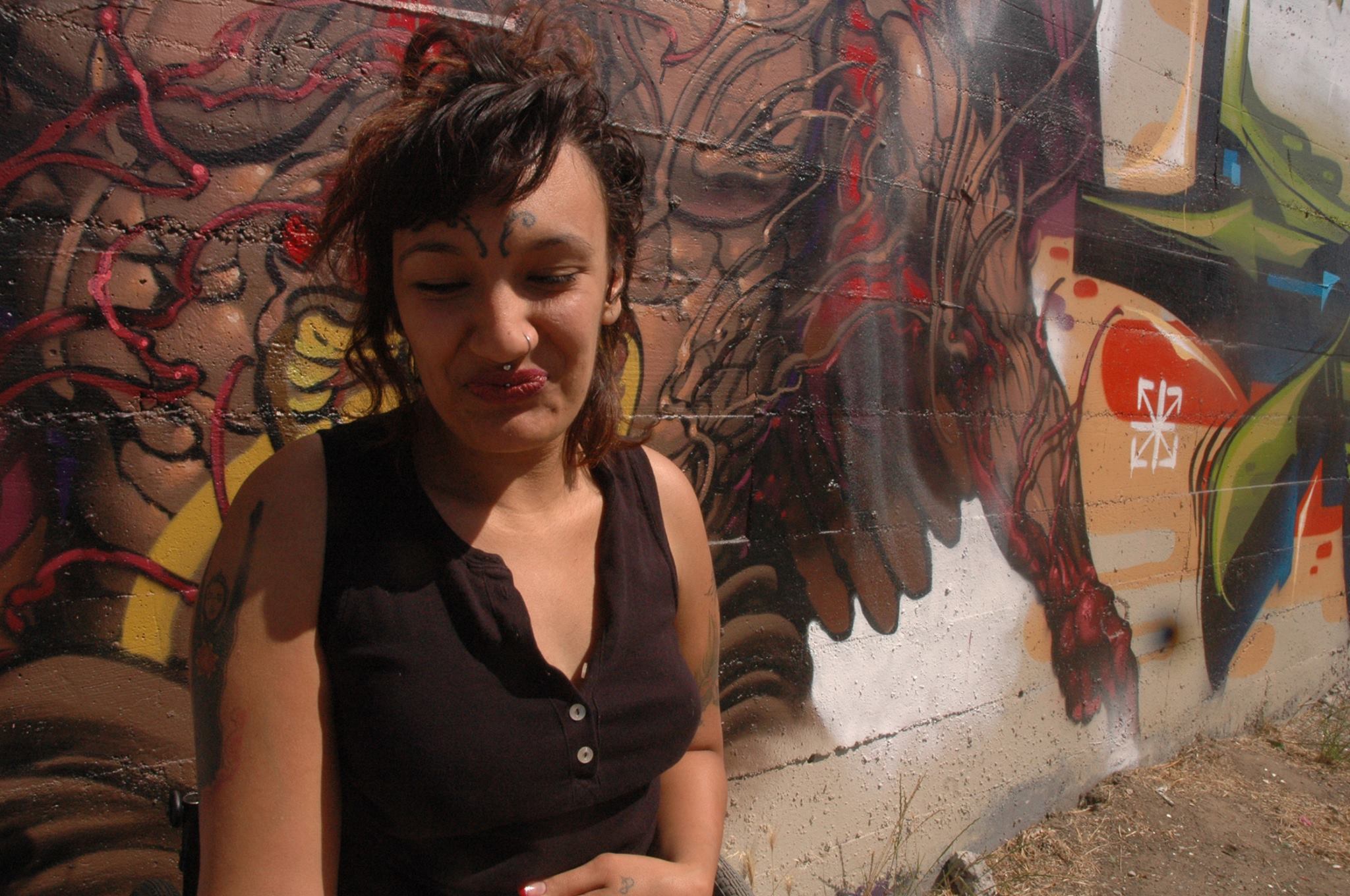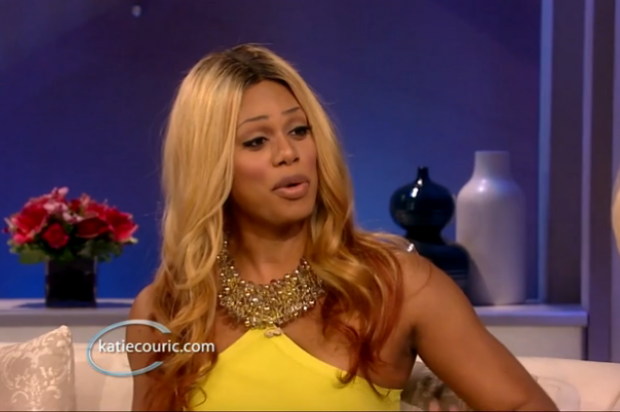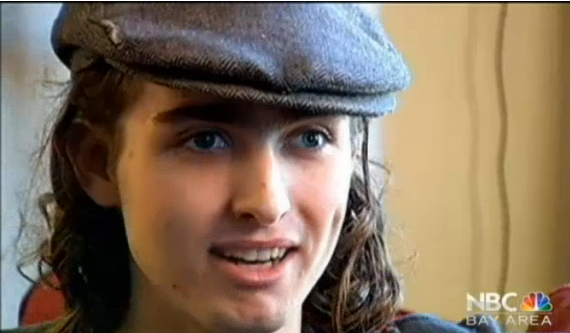In November, a high school student wearing a skirt was set on fire on an Oakland, CA city bus. Sasha Fleischman identifies as agender and prefers to go by the pronoun “they.” In the weeks after the hate attack, many conversations ensued about hate and acceptance alongside dialogue about the way we talk about gender. Here, Mazique Bianco explores gender terms directly, pointing to the empathy and compassion in each of us.
By Mazique Bianco

At a sun-drenched table at a cafe in Oakland, I listen to two people next to me discussing a hurt they have experienced. I’ve joined their table as a stranger in the packed cafe. I feel an affinity with them. One of the two friends gets up and the person next to me meets my eye. I ask them if they are going through something difficult, and their face breaks open into more softness.
We begin to drizzle each other with stories, compassion and commiseration. We talk about friendship and dating, wanting to consider others and being confused when they don’t consider us. In the process of explaining who we love, it comes up that I do not date cisgender men. I don’t say, “I’m queer.” “I’m a lesbian.” “I date other trans people.” “I am genderqueer.” All of which are also true and not mutually exclusive of one another. I say, “I don’t date cisgender men.” This takes my new friend aback.
“Wow! Sis...gender? What does that mean?” I smile, because often, if you don’t know what cisgender means, you are cisgender. But sometimes, it just means you are about to discover some really cool new possibilities.
If you have never questioned your gender, or never loved someone who has questioned their gender, you likely haven’t needed a term, because nobody has asked. Having a gender that people neither challenge nor perceive incorrectly to the detriment of your safety and sense of self is, in my opinion, a privilege. I explain to my new friend that cisgender people identify with the gender that “matches” the sex they were born with.
There is no fixed way to determine how someone identifies or likes to be referred to based on how they look. Only loving and respectful questions, and honest communication can bring about the answers to these questions.
By the time my two new, kind, lovely, cis girl friends left, it had even occurred to them to ask what gender pronouns I preferred. “Is it okay to use ‘she’?” one asked. And I said, yes it is okay, but I do prefer “they.” Thank you for asking! Here’s to asking!

There are polite and less polite ways to ask someone about their preferred pronouns and other aspects of their gender. Sometimes trans and gender variant people have been harangued all day with questions and just don’t want to answer another one. “What are your preferred pronouns?” is a nice question, whereas, “What’s up with your body? Have you gotten surgery?” are not-so-nice questions, especially when you don’t know someone. Recently, actress Laverne Cox responded to Katie Couric’s questions by reminding her that focusing on the bodies and transition status of trans people distracts from other issues trans people face. “The preoccupation with transition and surgery objectifies trans people...We experience discrimination disproportionately to the rest of the community. Our unemployment rate is twice the national average; if you are a trans person of color, that rate is four times the national average. The homicide rate is highest among trans women. If we focus on transition, we don’t actually get to talk about those things,” Cox said. Don’t be afraid to ask questions in order to learn, but be open to critique, or getting an answer you didn’t expect.
These issues of gender identity and community vulnerability intersect with the recent experience and ongoing recovery of a local teen, Sasha Fleischman. Just weeks before my experience at the cafe, Sasha’s skirt was sent on fire as they rode home on the city bus. Sasha identifies as agender and, like me, prefers the pronouns “they” and “them”.

In an NBC interview, Sasha explains their own process of discovery. The more that Sasha read and thought about gender, they wondered, how does anybody really know? Sasha began to ask the people in their life, like friends and family, how they knew that they were truly the gender assigned to them. What makes you a man? What makes you a woman? Any answer is valid, but it’s also difficult to answer these questions without reflecting how we have been conditioned to see ourselves based on our environment or societal expectations, as none of us exist in a vacuum.
For some of us, myself and Sasha included, no matter how we move, we cannot get one gender to stick to us. We are not a mold which gender can be poured into, we are not a canvas on which gender can dry. Sasha Fleishman explains how they identify now as agender, neither man nor woman, and not really a third gender either. Sasha also explains how agender is just one of many ways to identify with being genderqueer or gender variant.
Hampshire College had introduced to me the variety of genders that truly exist—a revelation and a comfort to me as someone who had been questioning their gender since childhood. And now, the only way I could think to explain my newfound identity, which was so amorphous and lovely, to my mother who was trying very much to understand me, was that I wasn’t a girl. Or maybe, that I wasn’t only a girl. At the time I was dating someone who identified as a boy, and my mother asked, “Doesn’t he see you as a girl?”
“No,” I said, “He just likes me.”
I know that this is a radical concept, but it’s just true. We have these bodies and these hearts. We find ourselves drawn to one another’s passion and compassion, one another’s integrity. Sometimes it’s style too. Sometimes it’s gender expression. There are totally expressions of gender I really dig. But they are not fixed. And they are not fixable.
Mazique Bianco is a member of the Not In Our School team.
Comments
Amazing
Amazing work!!! So important. Thanks for sharing this in a generous, accessible way.
Add new comment